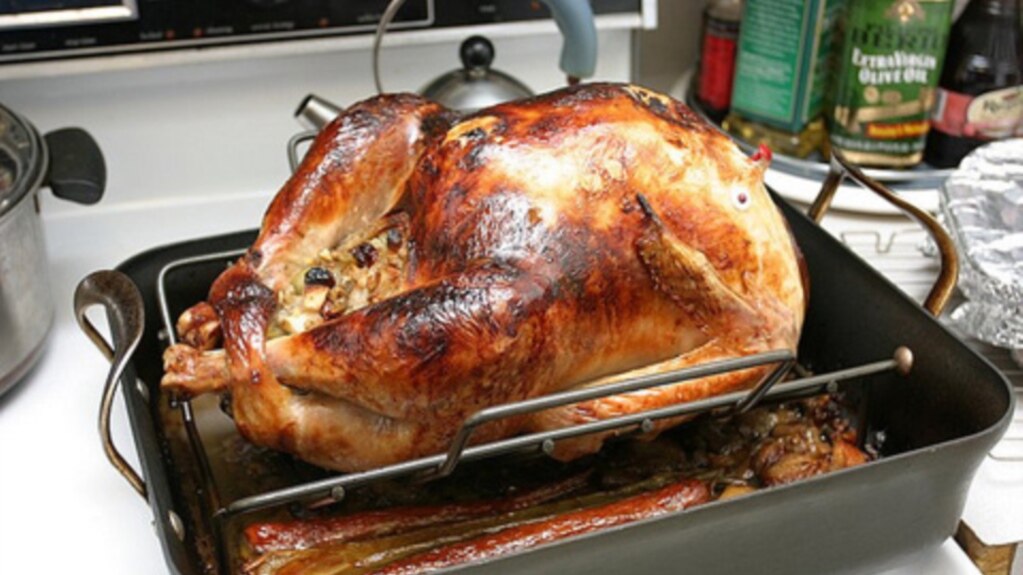
This is the VOA Special English Agriculture Report.
In sixteen twenty-one, a big celebration took place at Plymouth Colony in what is now the state of Massachusetts. European settlers known as the Pilgrims were celebrating their autumn harvest after a winter of struggle.
Other colonists held earlier ceremonies of thanks. But the Pilgrims' three-day feast is often called the nation's first Thanksgiving. President Abraham Lincoln declared a national holiday in eighteen sixty-three during the Civil War.
Today families and friends gather on the fourth Thursday in November. And, thanks to the United States Census Bureau, here are some facts about where their Thanksgiving meal comes from.
The main dish is traditionally a turkey. About two-thirds of the nation's turkeys are produced in Minnesota and five other states. Producers are expected to raise two hundred forty-eight million birds this year, two percent more than last year.
Popular side dishes include cranberries and sweet potatoes. Last year North Carolina grew more sweet potatoes than any other state. Wisconsin is expected to be the top cranberry producer this year.
People often finish the meal with pumpkin pie. Last year Illinois grew the most pumpkins. California, New York and Ohio were also major pumpkin producers.
Thanksgiving is a big event, but buying a traditional holiday meal can be a struggle for the poor. So charity groups often hold food drives to collect food for low-income families.
In Denver, Colorado, volunteers have been collecting donated items to fill fifteen hundred Thanksgiving baskets.
Rodney Cunningham has been helping the group Volunteers of America for three years. He and his family will also be getting food from the charity. He says this year the demand has been greater than ever.
RODNEY CUNNINGHAM: "One of the reasons why it’s really important is because the economy is pretty bad and a lot of people have a need for extra food. They don’t have any food at all."
Jim White, community affairs director at Volunteers of America, says people donated a lot of food.
JIM WHITE: "These individuals donated over one hundred forty-eight tons of food, but it takes a huge amount of food as you can imagine to do fifteen hundred food baskets complete with stuffing and cranberries and pumpkin and fresh produce, and then they are all topped off with a fifteen-pound frozen turkey."
Mr. White says volunteers come from all over Denver to help.
JIM WHITE: "Thanksgiving should be viewed as a verb not a noun, and what better way to give thanks than to help somebody out that you know is struggling right now?"
And that's the VOA Special English Agriculture Report. I'm Bob Doughty.
Contributing: Selah Hennessy
